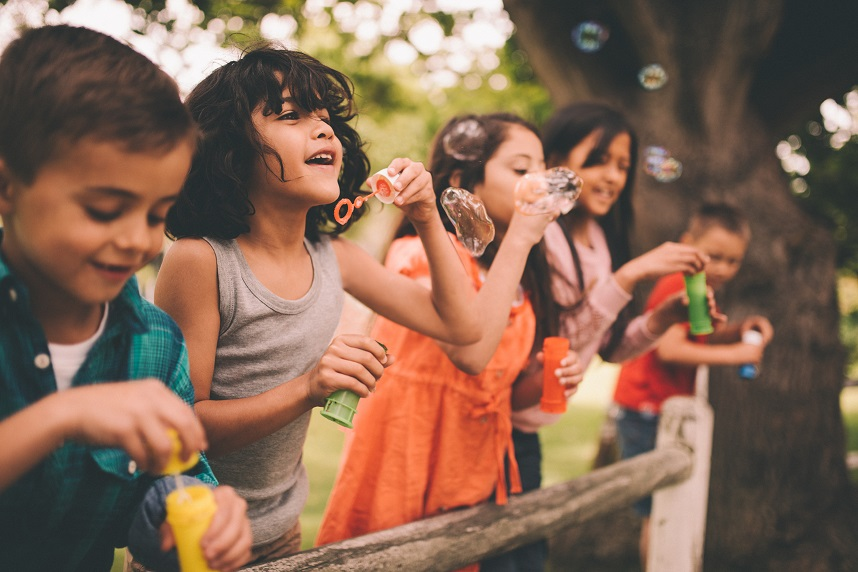
As infants and toddlers, children demonstrate initial kindness, especially toward people with whom they have a special bond. As they move into Early Childhood, children's natural empathy also expands. They are able both to understand that people's emotions have causes and they are increasingly able to demonstrate empathetic concern, that ability to take care of others when they are in distress.
But just as in their earlier development, these developing expressions of kindness can sometimes be overlooked in the busy-ness of adult life. In the Montessori classroom, safe from all the outside schedule demands of older or younger siblings, family obligations, work mandates, and other stressors, teachers prepare opportunities for these kindnesses to thrive. Look for the conditions and behaviors that support them:
1. Preserving a child-centered pace of the classroom: Because Montessori classrooms are not bound by specific windows for academic outcomes and offer a longer period of time for children-directed work, the classrooms often feel like they're operating at a more leisurely pace. The small opportunities, then, for interactions between children have time to take seed. A child who is struggling has the time to demonstrate those emotions, and a child who wants to help has the time to figure out how to, before either is rushed along to another activity.
2. Modeling attention and response: Montessori teachers take seriously the emotional and social lives of the classroom. When a child is in distress, they both model being attentive to that child and offer opportunities for other children to be a part of the solution. You might hear teachers say things like, "I can see that William is sad. William, why are you sad?" or, "I think you accidentally stepped on Nora's work mat. Would you like to go help her straighten her work out again?" They respond to children with language that demonstrates that it is ok to be sad sometimes and they give space for children to calm themselves at their own pace. "It can be hard when you're missing your Mom. Would you like me to sit with you for a while?" By responding to children's sadnesses with sincere attention, Montessori teachers remind the classroom- including other children who are aware of these interactions- that it is both ok to experience sadness and that it's ok to make consolation a priority.
3. Preparing opportunities for authentic support: Montessori classrooms have the tools available within them for children both to be independent in their choices, but also to be independent in correcting their mistakes. You'll see teachers suggest solutions sometimes, "Oh, dear! You've knocked over Max's water. Please go get a sponge to wipe it up." You'll also see children developing their own solutions, bringing each other flowers when they are sad, comforting each other, serving each other food, or demonstrating their new mastery of daily living skills by helping other children to zip coats, tie shoes and the like. There are opportunities for children to serve each other throughout the classroom, and within a three year cycle, opportunities for children to learn from and to teach each other how to care for each other and for their community.
Because our classrooms presume that children are naturally good, and because we seek to preserve this quality in children as they learn to navigate a complicated world, we make the space for children to practice kindness and empathy, those core qualities that evidence their goodness. We value these expressions of emotional responsiveness as highly as a child's ability to complete complex mathematical operations or name all the countries in Europe, because we believe that children need to feel safe and nurtured if they are to learn best. Montessori classrooms emphasize empathy not as an add-on to the academic curriculum, but as a precursor to it, creating social connections that are both personally affirming and, ultimately, academically propelling.
#Empathy #FirstPlane #Primary #ForParents #ForTeachers #Theory
